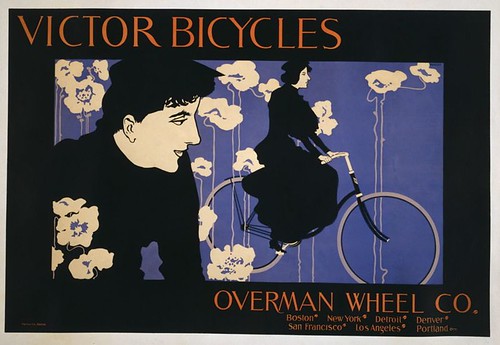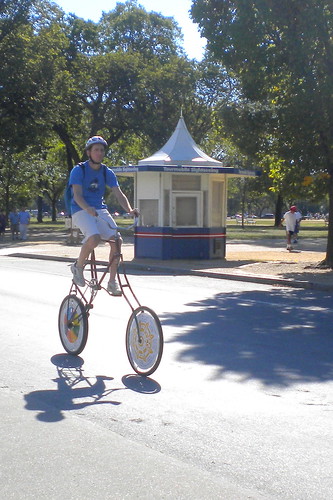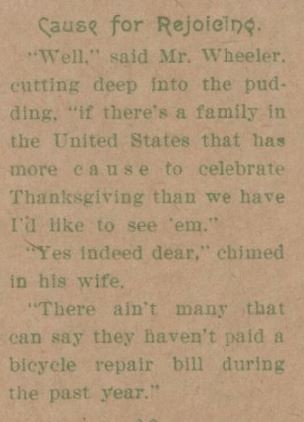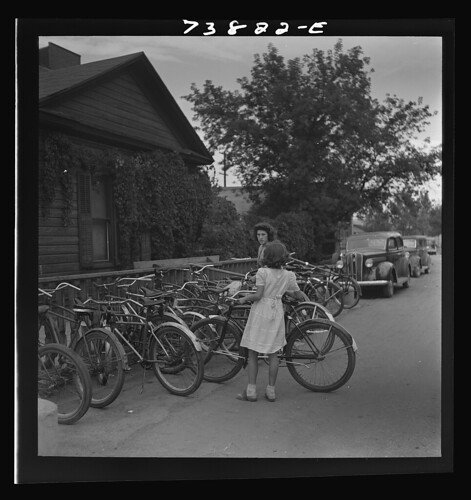 Hollywood Rides a Bike: Cycling with the Stars by Steven Rea
Hollywood Rides a Bike: Cycling with the Stars by Steven ReaMy rating: 4 of 5 stars
This is about 150 pages of photographs of movie stars riding bicycles, or simply posed with them. There is a short introduction. Most of the photos are older - only a handful after 1970 or so. Some are off movie stars on bikes in scenes in movies but more are of movie stars on bikes riding around the studio or in some publicity photo that happens to include a bike. The author has often been able to deduce what the bicycle is and provides that information, which is amusing and pleasing if one is interested in that sort of thing. One of the studios apparently liked "Rollfast" cruiser bikes that appear more than others.
As it happens, the author also has a blog that provides the same sort of photographs - http://ridesabike.com/. It says, "Rides a Bike was launched on Thanksgiving Day, 2010 — a photo blog designed to showcase and celebrate two big passions of mine: cycling and cinema." It appears a new photo is still added about once a week. There is a pull-down list of all the movie stars who appear in a photo (or in some cases, more than one).
I got this from the library, paged through it a bit, and was amused. For that, the book is better than the web site I think - but maybe not. Browsing quickly still seems something a paper book can do than a blog-format web site.
View my other book reviews.







